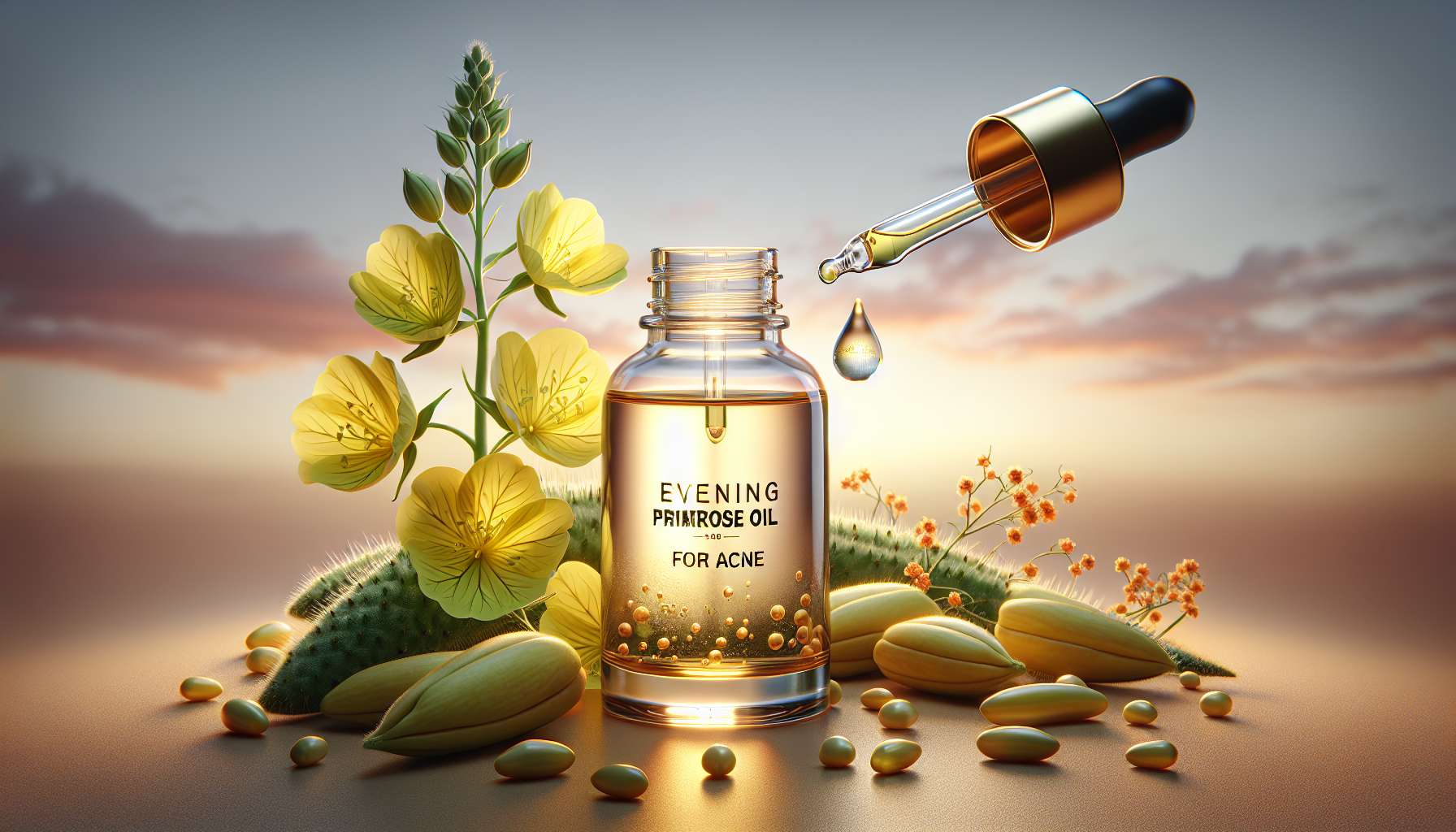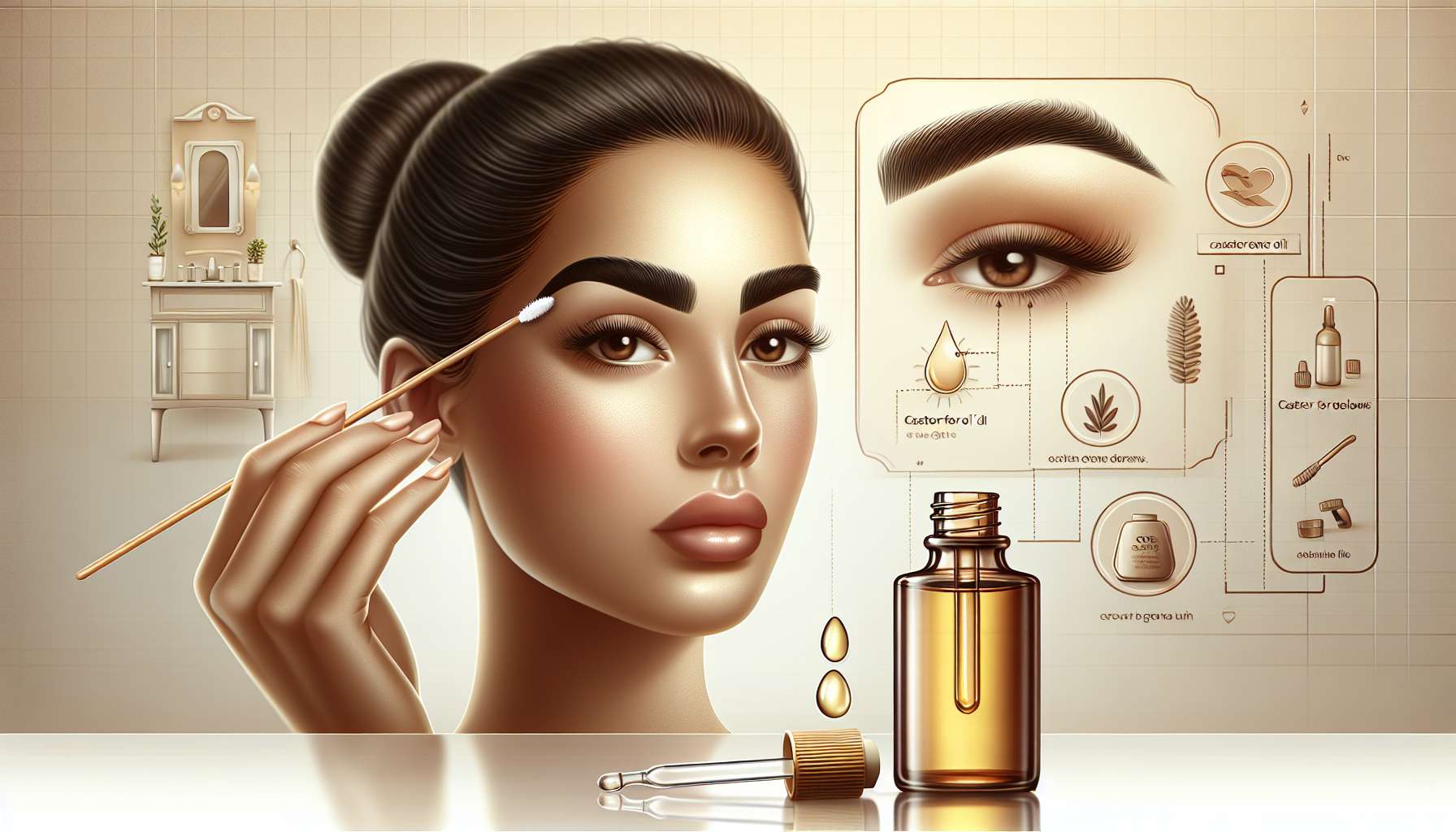Exploring the Benefits of Evening Primrose Oil for Acne
Acne is a common skin condition that affects millions of people worldwide. It can be frustrating and challenging to manage, often leading individuals to seek out various treatments and remedies. One such natural remedy that has gained popularity in recent years is evening primrose oil. This plant-based oil is known for its anti-inflammatory and moisturizing properties, making it a potentially effective solution for acne-prone skin. In this article, we will delve into the world of evening primrose oil for acne, exploring its benefits, applications, and potential impact on skin health.
The History of Evening Primrose Oil
Evening primrose oil is derived from the seeds of the evening primrose plant (Oenothera biennis), a native North American plant with bright yellow flowers that bloom in the evening. The oil extracted from these seeds has been used for centuries for its medicinal properties, particularly in traditional Native American medicine.
In the 17th century, evening primrose oil gained popularity in Europe for its healing properties, with herbalists and natural medicine practitioners using it to treat a variety of conditions, including skin disorders, respiratory issues, and women’s health concerns. Today, evening primrose oil is widely available as a dietary supplement and topical treatment, with many people turning to it as a natural alternative for acne management.
The Science Behind Evening Primrose Oil for Acne
Evening primrose oil is rich in gamma-linolenic acid (GLA), an omega-6 fatty acid that has anti-inflammatory properties. Inflammation plays a significant role in the development of acne, as it can lead to clogged pores, redness, and swelling. By reducing inflammation, evening primrose oil may help alleviate acne symptoms and promote clearer skin.
Additionally, GLA is essential for maintaining the skin’s barrier function and moisture balance. Individuals with acne-prone skin often struggle with dryness and irritation, which can exacerbate their condition. By incorporating evening primrose oil into their skincare routine, they may benefit from increased hydration and improved skin barrier function, leading to smoother and healthier-looking skin.
How to Use Evening Primrose Oil for Acne
There are several ways to incorporate evening primrose oil into your skincare routine to help manage acne. One popular method is to use it as a topical treatment by applying the oil directly to the affected areas of the skin. To do this, simply pour a small amount of evening primrose oil onto your fingertips and gently massage it into clean, dry skin. You can also mix a few drops of evening primrose oil with your favorite moisturizer or facial serum for added benefits.
In addition to topical application, some individuals choose to take evening primrose oil orally as a dietary supplement. By consuming evening primrose oil capsules or liquid supplements, you can reap the internal benefits of GLA, which may help reduce inflammation from within and support overall skin health.
Real-Life Experiences with Evening Primrose Oil
Many individuals have reported positive experiences with using evening primrose oil for acne. They have noticed improvements in their skin’s texture, reduced redness and inflammation, and fewer breakouts after incorporating evening primrose oil into their skincare routine. Some users have even credited evening primrose oil with helping them achieve clearer and more radiant skin.
One user, Sarah, shared her experience with evening primrose oil on an online skincare forum: “I have struggled with acne for years, trying countless products and treatments with little success. After hearing about evening primrose oil, I decided to give it a try. Within a few weeks, I noticed a significant improvement in my skin. My breakouts reduced, and my skin looked more balanced and hydrated. I am now a firm believer in the power of evening primrose oil for acne.”
Expert Opinions on Evening Primrose Oil for Acne
While anecdotal evidence and personal testimonials can provide valuable insights into the efficacy of evening primrose oil for acne, it is essential to consider the opinions of skincare experts and dermatologists. Many professionals believe that evening primrose oil can be a beneficial addition to a skincare routine, particularly for individuals with inflammatory acne or sensitive skin.
Dr. Jessica Wu, a board-certified dermatologist and author of “Feed Your Face,” recommends evening primrose oil for its anti-inflammatory properties. She explains, “Evening primrose oil is rich in GLA, which can help reduce inflammation in the skin and promote healing. It is a gentle and natural ingredient that can benefit those struggling with acne and other skin conditions.”
Common Misconceptions about Evening Primrose Oil
Despite its potential benefits, evening primrose oil is not a one-size-fits-all solution for acne. It is essential to understand that individual responses to skincare products can vary, and what works for one person may not work for another. Some individuals may experience adverse reactions to evening primrose oil, such as skin irritation or allergic reactions.
It is also crucial to use evening primrose oil in conjunction with a comprehensive skincare routine that includes cleansing, exfoliating, and moisturizing. While evening primrose oil can help manage acne symptoms, it is not a substitute for proper skincare practices and habits. Consulting with a dermatologist or skincare professional before incorporating evening primrose oil into your routine is recommended, especially if you have sensitive skin or existing skin conditions.
Comparative Analysis: Evening Primrose Oil vs. Traditional Acne Treatments
When comparing evening primrose oil to traditional acne treatments, such as benzoyl peroxide or salicylic acid, there are several key differences to consider. While traditional acne treatments target acne-causing bacteria and unclog pores, evening primrose oil focuses on reducing inflammation and balancing the skin’s moisture levels.
One advantage of evening primrose oil is its natural composition, which may be more appealing to individuals seeking a holistic approach to skincare. Traditional acne treatments can be harsh and drying, leading to irritation and sensitivity, whereas evening primrose oil is gentle and nourishing, making it suitable for individuals with sensitive or dry skin.
FAQs about Evening Primrose Oil for Acne
1. Is evening primrose oil suitable for all skin types?
While evening primrose oil is generally well-tolerated by most skin types, individuals with sensitive or allergy-prone skin may experience adverse reactions. It is always recommended to perform a patch test before using evening primrose oil on the face or body.
2. How long does it take to see results from using evening primrose oil for acne?
The timeline for seeing results from evening primrose oil can vary depending on the individual’s skin type and condition. Some users may notice improvements within a few weeks, while others may require more extended use to see significant changes in their skin.
3. Can evening primrose oil be used in combination with other skincare products?
Yes, evening primrose oil can be used in conjunction with other skincare products, such as cleansers, toners, and serums. It is essential to patch test new products and monitor your skin’s response to avoid any potential interactions or irritations.
Conclusion: Embracing the Power of Evening Primrose Oil for Acne
As we have explored in this article, evening primrose oil offers a natural and potentially effective solution for managing acne and promoting healthier skin. Its anti-inflammatory properties, moisturizing benefits, and gentle nature make it a popular choice for those looking to address acne concerns holistically.
Whether used as a topical treatment or a dietary supplement, evening primrose oil has the potential to improve skin texture, reduce inflammation, and enhance overall skin health. By incorporating evening primrose oil into your skincare routine and consulting with skincare professionals for guidance, you can harness the power of this botanical oil for clearer, healthier skin.
Long story short, evening primrose oil for acne is a promising natural remedy that deserves consideration for individuals seeking a holistic approach to skincare. By understanding its benefits, applications, and potential impact on skin health, you can make informed decisions about incorporating evening primrose oil into your daily routine. Here’s to healthier, happier skin with the power of evening primrose oil!




